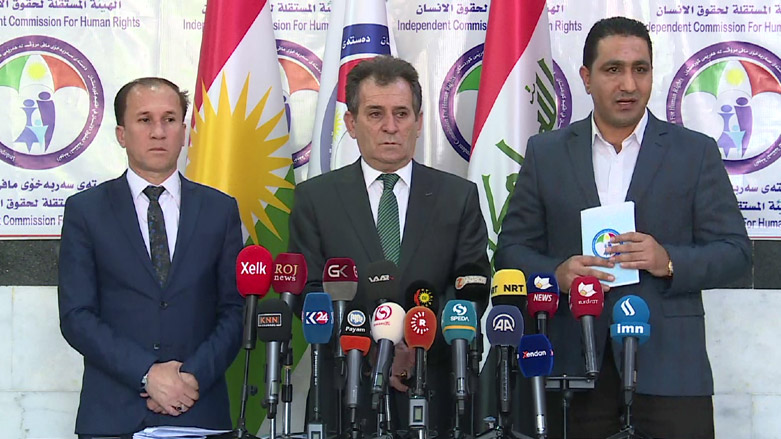Financial crisis affected jail conditions in Kurdistan: Commission

ERBIL, Kurdistan Region (Kurdistan 24) – The financial crisis in the Kurdistan Region has taken a toll on the human rights situation in the region, the Kurdish Human Rights Commission said on Sunday.
Conditions in prisons have worsened, and many prisoners are detained in small rooms, the Independent Human Rights Commission of the Kurdistan Region said in a statement.
The commission stated that, in total, there are seven police-run and intelligence agency (Asayish)-managed prisons in Kurdistan. Most detainees wait extended periods of time to have their cases addressed.
“We have tracked tens of cases on which the court ruled six months after the expected date,” the statement asserted. “There are four cases which have been held up for four years now.”
The commission noted that the infrastructure was old and inadequate, violating human rights laws.
It added that security services do not always inform the families of those detained on terrorism-related cases, nor do they reveal their whereabouts. The commission stated it constitutes a violation of their rights, and explained families should be notified within 24 hours of the arrest.
The independent body revealed that those detained for drug offenses, namely consumers, were being treated poorly and as serious offenders rather than victims who need help to recover from their addictions.
Some of the detainees have been tortured during investigations, a “clear violation of human rights.”
According to the Commission, seven individuals have died in detention in 2017 due to various reasons.
Over the past few years, the Kurdistan Region has been suffering through a financial crisis, in large part due to federal budget cuts by Baghdad in 2014, the drop of oil prices internationally, the war against the Islamic State (IS), and the sudden influx of 1.8 million refugees and internally displaced persons (IDPs).
Editing by Nadia Riva
